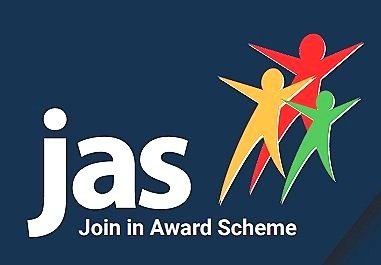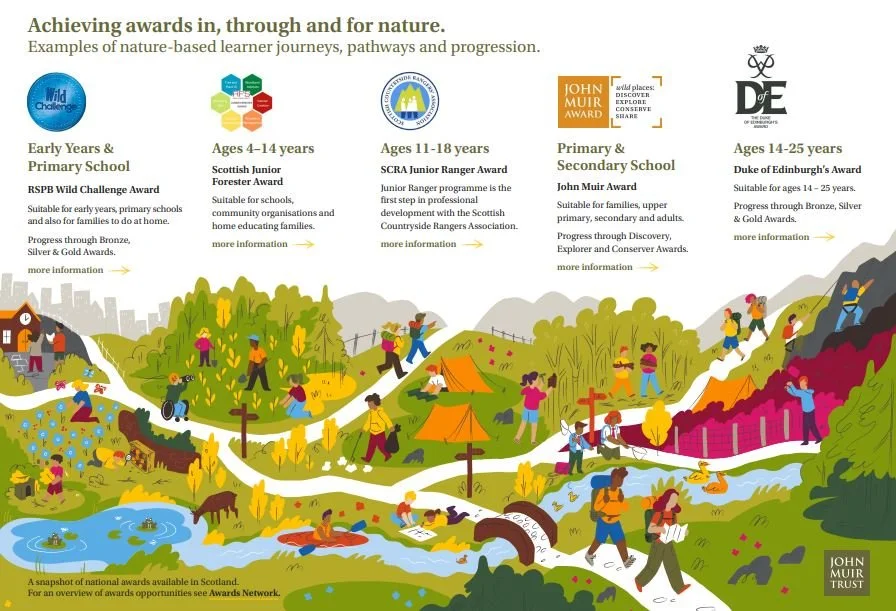Schools & Organisations
School settings
As a highly flexible award, JAS participation can be spread over a term, an academic year, or as a progression between school years. How it is used can be adapted to suit the needs and abilities of the individual participant. This has been particularly effective in Additional Support Need settings.
Teachers/mentors normally work with participants to plan their own programme of activity for the four sections. Objectives should be challenging yet achievable, taking into account individual abilities. Activities may be group or individual based.
Self-evidenced, JAS gives flexibility to tailor activities to participant needs and circumstances. Existing in-school activities, as well as out-of-school interests, can be integrated. External resources can be used as appropriate to deliver and support activity.
JAS is an effective tool to help bridge the attainment gap, especially in areas of high deprivation areas e.g through the Pupil Equity Funding or the Scottish Attainment Challenge Fund.
Curriculum links
JAS was developed alongside Scotland’s Curriculum for Excellence; it fits well with England’s National Curriculum as well as educational settings worldwide.
JAS aligns with the 4 capacities of Curriculum for Excellence in Scottish Education.
It lends itself to assisting with pupil profiling, particularly in the final year of primary school, and to providing content for records of achievement and/or pupil portfolios.
Curriculum - the totality of all that is planned for children and young people from early learning and childcare, through school and beyond - can be planned for and experienced by learners across four contexts:
Achievement – a key element of Curriculum for Excellence
In particular, JAS fits with a context of ‘personal achievement’. Achievement is defined as ‘progress in all aspects of each child’s or young person’s planned learning’ (Building the Curriculum 5). ‘Achievement covers learning within curriculum areas and interdisciplinary learning, including recognition through qualifications, but it is much wider than that. It includes achievement in other areas within the life of the school and outside the school – sometimes referred to as ‘wider’ achievement.’
'Personal achievement provides children and young people with a sense of satisfaction and helps to build motivation, resilience and confidence…All establishments need to plan to offer opportunities for achievement and to provide the support and encouragement which will enable children and young people to step forward to undertake activities which they find challenging. This is one of the key areas where schools need to work closely with a wide range of partners to help young people access information and opportunities and make their voices heard.'
Curriculum for Excellence Refreshed Narrative
Progressive pathways can be developed through nature-based awards such as The Duke of Edinburgh’s Award (DofE), John Muir Award, and 16+ Activity Agreements. See National nature-based awards infographic.
Testimonials
“JAS is fantastic at providing a goal centred individual programme and allows pupils to reflect. It encourages a growth mindset and self-confidence.” JAS Champion
“I liked how you had to organise it yourself.” Participant
“JAS has helped to engage many of our most disengaged learners.” JAS Champion
“It was fun to challenge myself and push myself to the limit.” Participant
“Some pupils have become far more confident in their own abilities and have learnt not to be scared of unknown experiences. A lot of success for all pupils was achieved through JAS.” JAS Champion



